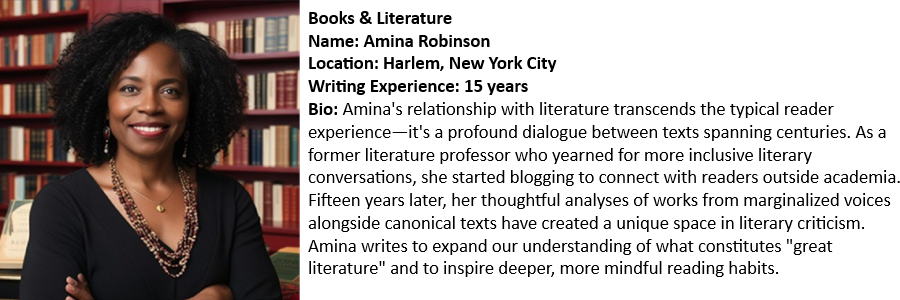Understanding Postcolonial Literature
Postcolonial literature refers to a body of literary work produced in response to the historical, cultural, and social ramifications of colonialism. This genre emerged primarily in the mid-20th century, influenced by the decline of colonial empires and a growing awareness of the complex identities within formerly colonized nations. Writers from diverse backgrounds have sought to voice the perspectives of those who experienced the dislocation, oppression, and cultural imposition characteristic of colonial rule. Through their narratives, postcolonial authors aim to reclaim agency and highlight the diversity of experiences among colonized individuals.
The significance of postcolonial literature lies in its ability to challenge dominant narratives that have historically marginalized the voices of colonized peoples. By offering insights into their struggles, hybrid identities, and cultural resilience, this literary form serves as a counter-narrative to the Eurocentric perceptions of history. Authors like Chinua Achebe, Salmon Rushdie, and Arundhati Roy grapple with themes of identity, cultural conflict, and resistance against colonial legacies. Their works explore the intricate intersections of personal and collective identities, often dealing with the pain of cultural dislocation and the search for a sense of belonging.
Hybridity serves as another central theme in postcolonial literature, emphasizing the blending of cultures and identities that results from colonial encounters. This notion of hybridity not only challenges the binaries of colonizer and colonized but also reflects the evolving nature of cultural expressions in the aftermath of colonization. Additionally, the theme of resistance is prevalent, as many authors depict the struggles against colonial oppression and the quest for self-determination. Through these narratives, postcolonial literature becomes a powerful medium for asserting identity and resilience in the face of historical injustices, fostering a deeper understanding of the complexities surrounding colonial legacies.
Influential Postcolonial Authors
Postcolonial literature serves as a vital medium through which authors articulate the complexities of identity, culture, and power dynamics following the colonial era. Prominent postcolonial authors like Chinua Achebe, Salman Rushdie, and Chimamanda Ngozi Adichie have profoundly shaped this literary genre, each bringing a unique perspective informed by their individual backgrounds and experiences.
Chinua Achebe, often hailed as the father of African literature in English, emerged from Nigeria amid the complexities of colonialism. His seminal work, “Things Fall Apart,” explores the clash between traditional Igbo society and the forces of colonialism, highlighting the nuanced identities of individuals caught in this turmoil. Achebe’s writing emphasizes the importance of reclaiming the narratives of marginalized voices, as he articulates the struggles and resilience of his people in the face of historical oppression.
Salman Rushdie, born in India and later relocating to the UK, employs magical realism in his narratives to address themes of displacement and cultural hybridity. His acclaimed novel “Midnight’s Children” not only discusses the birth of modern India but also critiques colonial legacies and the often chaotic transitions to independence. Rushdie’s storytelling challenges Western perspectives, encouraging readers to engage with the messiness of postcolonial identities and the multiplicity of histories that shape them.
Chimamanda Ngozi Adichie, a contemporary voice in postcolonial literature, amplifies the experiences of women in Nigeria and the diaspora. Through works such as “Half of a Yellow Sun” and “Americanah,” she navigates themes of love, loss, and identity, illustrating the intersection of personal and political realms in her characters’ lives. Adichie’s incisive exploration of feminism, nationality, and cultural belonging challenges traditional narratives and underscores the importance of diverse voices within postcolonial discourse.
Each of these authors utilizes their literary platforms not only to recount personal stories but also to advocate for the recognition of marginalized voices in society. Their work continues to resonate globally, influencing new generations of writers and readers in understanding the complexities of postcolonial identities and experiences.
Reclaiming Narratives and Challenging Perspectives
Postcolonial literature serves as a profound medium through which writers reclaim narratives that were historically marginalized or manipulated by colonial forces. By engaging with their unique cultural histories and experiences, these authors confront and challenge colonial constructs, ultimately reshaping the discourse surrounding identity, culture, and representation. One of the primary strategies employed is the use of local languages, which not only honors the authenticity of their voices but also disrupts the dominance of colonial languages such as English and French. The incorporation of indigenous languages creates a multifaceted narrative that connects readers intimately to the local context, rich in cultural nuances and oral traditions.
In addition to language, intertextuality emerges as a significant literary device. Authors often draw upon existing texts, weaving together personal and collective histories to highlight contradictions and gaps in Western narratives. This technique allows them to reclaim agency over their stories by repositioning them within a broader literary framework that acknowledges their heritage. By referencing literary works that represent colonial perspectives, postcolonial writers expose the biases inherent in such portrayals and offer alternative interpretations that are grounded in their lived realities.
Non-linear narratives further contribute to the reclamation of voices in postcolonial literature. These narratives resist the conventional structure often associated with Western storytelling, allowing for a more fluid and representative exploration of identity and memory. By embracing fragmentation, repetition, and multiple perspectives, authors challenge readers to engage with complexities and contradictions inherent in their cultures. Through these varied literary techniques, postcolonial writers not only highlight the flaws in prior Western representations but also foster a more nuanced understanding of their diverse experiences, ultimately paving the way for greater empowerment and resistance against the remnants of colonialism.
The Impact of Postcolonial Literature on Global Discourse
Postcolonial literature has significantly influenced global literary discourse by fostering cultural dialogue and diversity. As writers from previously colonized nations share their narratives, they offer new perspectives that challenge the dominant Eurocentric canon. This body of work stimulates critical discussions around identity, history, and power dynamics, thus enriching the overall literary landscape. By articulating experiences of marginalized cultures, postcolonial literature provides a platform for voices that have often been silenced, leading to a broader understanding of the global human experience.
Moreover, postcolonial literature serves as a mirror reflecting contemporary social and political movements worldwide. Authors from diverse backgrounds address ongoing struggles for justice, equality, and representation through their narratives. This interconnection between literature and activism underscores the potency of storytelling as a means of advocating for change. The themes explored in postcolonial texts resonate with readers and communities, creating solidarity and fostering an awareness of shared challenges across borders. Such narratives have the potential to inspire individuals to engage with pressing issues in their societies.
Recent developments in academia and publishing have further amplified the visibility and significance of postcolonial literature. As educational institutions increasingly prioritize diverse curricula, the inclusion of postcolonial works enriches student learning and promotes cultural awareness. Simultaneously, the rise of independent publishing houses has contributed to the dissemination of postcolonial voices, enabling authors to reach wider audiences. This expansion of access is crucial for nurturing literary diversity and ensuring that marginalized perspectives remain prevalent in global discussions.
In conclusion, the impact of postcolonial literature on global discourse is profound. It not only encourages intercultural dialogue and promotes literary diversity but also plays a vital role in contemporary movements advocating for justice and equality. By highlighting voices from the margins, postcolonial literature continues to shape the narrative of our times, contributing to a more inclusive literary canon.


